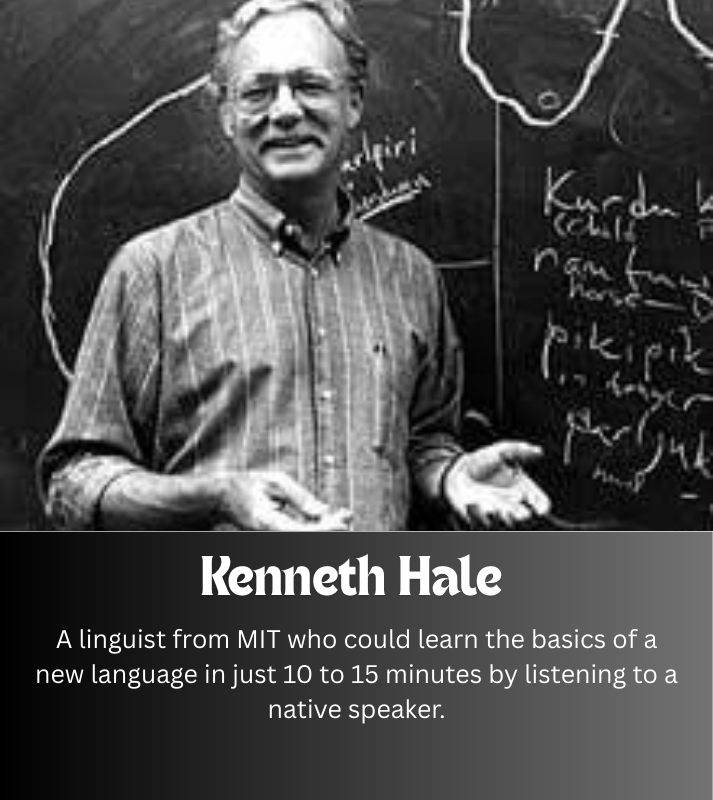Kenneth Hale
The '1 in a Million' Linguist


Kenneth L. Hale (1934–2001) was a renowned and prodigious linguist from the Massachusetts Institute of Technology (MIT), widely celebrated for his extraordinary ability to rapidly grasp the fundamental structures of new languages. While the popular claim that he could learn the basics of a new language in just 10 to 15 minutes is a colorful exaggeration, it's rooted in his genuine and rare talent for linguistic analysis. He was known to master the core grammar of an unknown language with remarkable speed after just a brief session with a native speaker.
The Method Behind the Mastery 🧠
Hale's method wasn't about simply memorizing words; it was about identifying the underlying grammatical rules. When encountering a new language, he wouldn't ask for translations of common phrases. Instead, he would pose a series of highly specific questions to a native speaker to uncover the language's core syntax and morphology. He focused on things like:
Word Order: Is the sentence structure Subject-Verb-Object (like English) or is it different?
Case Marking: How are subjects and objects marked? Do they have different endings?
Verb Conjugation: How do verbs change to reflect tense or the person performing the action?
Pluralization: How are nouns made plural?
Pronouns: What are the basic pronouns (I, you, he, she, etc.)?
Kenneth Hale: The '1 in a Million' Linguist
By systematically piecing together these rules, Hale could construct a foundational grammatical framework in his mind, which allowed him to understand how sentences were built and to create new ones. This was a process of linguistic deduction, not just rote memorization.
A Champion of Endangered Languages
Hale's incredible gift was not just an academic curiosity; he used it to become a tireless advocate and documenter of endangered languages. He spent much of his career traveling the world, working with small, often isolated, communities to document languages that had never been written down before. He collected data on over 80 languages, including many indigenous languages of North and Central America, as well as languages from Australia and Africa. His work was crucial in preserving linguistic knowledge that otherwise would have been lost forever.
He viewed every language, no matter how small its number of speakers, as a unique and invaluable window into human cognition and culture. His dedication to these languages and the people who spoke them is his lasting legacy.
Discover the extraordinary and unique stories.
Inspire
© 2025. All rights reserved.
